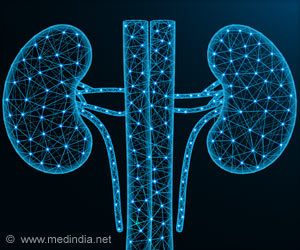Introduction
The APOL1 gene mutation has emerged as a significant factor influencing the risk of kidney disease. In recent years, research has provided valuable insights into the protective effects associated with specific variants of the APOL1 gene. This article delves into the details of the APOL1 gene, its connection to kidney disease, and the groundbreaking findings that suggest its mutation may contribute to a decreased risk of developing certain forms of renal dysfunction.
Understanding the APOL1 Gene
The APOL1 gene, located on chromosome 22, encodes apolipoprotein L1, a component of high-density lipoprotein (HDL) particles. APOL1 plays a crucial role in the body’s defense against certain trypanosomes, which cause African sleeping sickness. However, individuals of African descent carry two common genetic variants of the APOL1 gene – termed G1 and G2 – that are associated with an increased risk of kidney disease.
APOL1 Gene and Kidney Disease Risk
- Association with Kidney Disease:
- Individuals carrying two risk variants (homozygous for G1 or G2) are at a notably higher risk of developing kidney diseases.
- Conditions such as focal segmental glomerulosclerosis (FSGS) and hypertension-attributed end-stage kidney disease (H-ESKD) are particularly linked to the APOL1 gene variants.
- Reduced Risk with APOL1 Gene Mutation:
- Surprisingly, recent research has uncovered a counterintuitive finding – the presence of a specific mutation in the APOL1 gene appears to reduce the risk of kidney disease.
- This mutation, termed the “G1-G2 protective haplotype,” involves the simultaneous presence of one risk variant (G1 or G2) and a specific protective variant. Individuals with this protective haplotype exhibit a lower susceptibility to kidney diseases.
Mechanisms Behind Protection
- Improved Cellular Function:
- The protective variant within the G1-G2 haplotype is associated with improved cellular function, particularly in podocytes, which are crucial components of the kidney’s filtration system.
- Enhanced podocyte function is believed to contribute to the protective effects against certain forms of kidney disease.
- Interaction with Risk Variants:
- The protective haplotype appears to modify the impact of the risk variants within the APOL1 gene.
- This intricate interaction results in a unique genetic profile that mitigates the harmful effects of the risk variants, thereby reducing the overall risk of kidney disease.
Implications for Clinical Practice
- Risk Stratification:
- Understanding an individual’s APOL1 gene profile can aid in risk stratification for kidney disease.
- Identifying those with the protective G1-G2 haplotype may help clinicians predict a lower risk of specific kidney conditions.
- Precision Medicine Opportunities:
- The discovery of the protective APOL1 gene variant opens doors to precision medicine approaches for kidney disease.
- Tailoring interventions based on an individual’s APOL1 gene profile may become a reality, offering more targeted and effective treatments.
Ongoing Research and Future Perspectives
- Unraveling Complexity:
- Despite significant progress, the interplay between different APOL1 gene variants and their precise mechanisms of action remain areas of ongoing research.
- Further exploration is needed to understand the intricate genetic and molecular pathways influencing kidney disease susceptibility.
- Therapeutic Developments:
- The identification of protective APOL1 gene variants provides a foundation for potential therapeutic developments.
- Researchers are actively investigating ways to leverage this genetic insight for the development of novel treatments and interventions.
Conclusion
The APOL1 gene mutation has emerged as a pivotal factor in influencing the risk of kidney disease. While certain variants are associated with an increased susceptibility, the discovery of a protective haplotype has provided a fascinating twist to the narrative. Understanding the complexities of the APOL1 gene and its variants opens new avenues for personalized medicine and targeted interventions in the realm of kidney disease. Ongoing research holds the promise of unveiling even more insights, potentially revolutionizing how we approach and manage renal health.


I was suggested this web site by my cousin Im not sure whether this post is written by him as no one else know such detailed about my trouble You are incredible Thanks
Normally I do not read article on blogs however I would like to say that this writeup very forced me to try and do so Your writing style has been amazed me Thanks quite great post
Just days ago I discovered this awesome website, a standout for fans. The gifted owner keeps visitors riveted with spot-on content. I’m stoked to be a new member of the community and eager to see what interesting content comes next!
I came across this wonderful site a couple days back, they produce splendid content for readers. The site owner knows how to provide value to fans. I’m pleased and hope they continue creating excellent material.